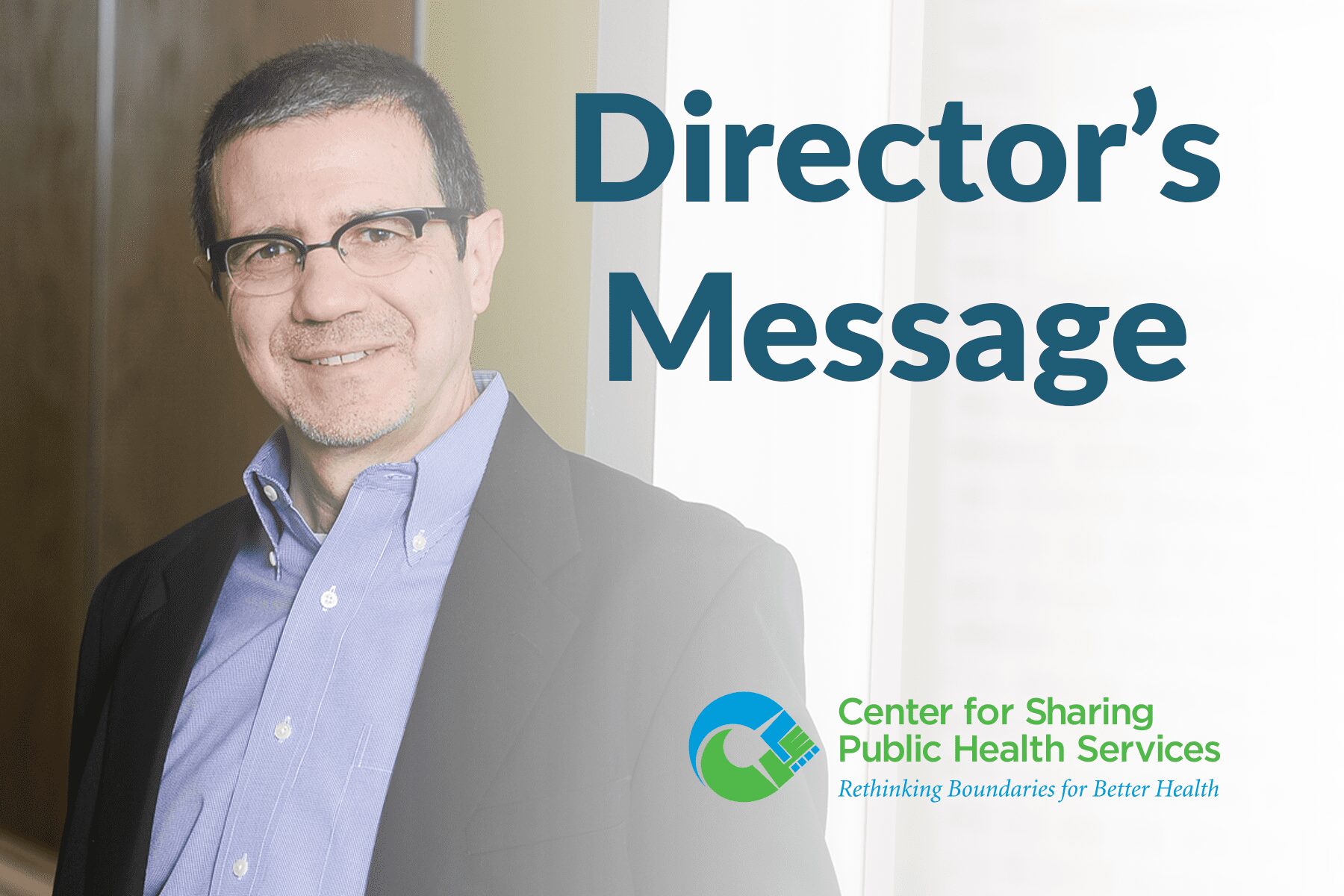A Message from the Director of the Center for Sharing Public Health Services
As we pass the one-year mark in our collective response to the COVID-19 pandemic, one thing is clear: our public health system is fragmented, and this fragmentation leads to deep disparities in the ability to respond to public health emergencies like a pandemic. Health departments are set to receive billions of dollars in federal aid through the COVID-19 relief legislation (for details see NACCHO and ASTHO). This influx of funding presents a unique opportunity to build a more effective, equitable and responsive system, and there is a growing interest in resource sharing across organizational boundaries as a valuable tool for assuring that essential public health services are provided to all. This Director’s Message highlights examples of modernization activities that include resource sharing, with particular attention to the potential role that state policymakers may have in promoting resource sharing to modernize public health.
Early Efforts
In the last decade several states have worked to modernize their public health system. Some drivers were a 2012 report from the Institute of Medicine (now the National Academies), the RESOLVE framework, the Foundational Public Health Services model and the work done through the 21C project.
In 2013, Ohio became the first state to mandate accreditation. All health departments in the state must provide the Minimum Package of Public Health Services. Consolidation and other forms of resource sharing, particularly for smaller jurisdictions, are encouraged to accomplish these requirements.
In Kansas, the Public Health Systems Group (a group of public health stakeholders) developed a model for foundational public health services in 2017. A year later, public health partners developed an Implementation Roadmap to Modernize the Public Health System. A key component of the roadmap is exploring and implementing new service delivery models, like resource sharing, to increase capacity for delivering essential public health services.
New and Future Efforts
In 2020, a team of researchers at the IUPUI Fairbanks School of Public Health, with input from stakeholders (including dozens of key informant interviews), set out to study and describe the public health system in the Hoosier State. Culminating in a report released in December, the team identified four overarching recommendations for the effective modernization of the Indiana public health system. Among the key recommendations was a district-level mechanism to enable resource sharing among local health departments.
A recently proposed bill in Washington state is the latest development in a multi-year effort to modernize the public health system in the state. House Bill 1152 would make numerous structural changes to the public health system and relies heavily on resource sharing to advance new service delivery and governance models. The legislation would codify a steering committee responsible for defining and guiding purpose, roles, and services of regional shared service centers. The regional shared service centers would be staffed by regional coordinators and would leverage and share technical expertise in the governmental public health system through new service delivery models.
State Leadership and Buy-In
The unique circumstances, relationships, laws, and legal structures in each state have led to different approaches to advance modernization efforts. In some cases, state policymakers have attempted to use a “top-down” approach, dictating new requirements for local health departments to collaborate and share resources with other jurisdictions. In other cases, proposed modernization activities and resource sharing have been the result of carefully balancing the input from many stakeholders. Regardless of the model adopted, state leaders’ involvement plays an important role in creating a new, effective and efficient public health system in which local health departments retain their uniqueness, yet enhance their capacity through resource sharing. Strong state leadership, effective technical support, buy-in from stakeholders, and legislative champions can create a foundation and sustain momentum for implementing new models that involve resource sharing. The Center for Sharing Public Health Services will continue to monitor these and other examples, providing technical assistance when requested and documenting the results of those activities.
Save the Date: Small Grants to Support Resource Sharing
Are you pursuing a resource sharing arrangement to modernize public health? We invite you to save the date for the next round of our Small Grants initiative. This initiative provides funding and technical support to health departments testing or expanding resource sharing arrangements to provide foundational public health services, modernize public health, advance health equity and more. The call for proposals will officially be released on April 12, 2021. Watch your email for more details. If you are not already on our email list, sign up at the bottom of our home page.
Has resource sharing played a role in your response to COVID? If you have stories to share or need technical assistance, please contact us at phsharing@khi.org.
— Gianfranco Pezzino, Director
